“Some of these disease outbreak movies can be very cathartic, thought-provoking, and some speak highly of the human spirit which doesn’t get affected however daunting an epidemic or pandemic is.”
The global outbreak of coronavirus (COVID-19), declared as a pandemic is causing the single biggest humanitarian crisis of the 21st century so far. Every day or every hour is presenting us with two chief global scenarios: one that inspires optimism (stories of successful containment) and the other that makes us cringe (predictions of a lengthy pandemic). Anyway, it’s time for each of us to be more patient, humane, and courageous than ever.
For many of us introverts, self-isolation is not a strategy but a way of life. Yet epidemic outbreak or not, we all withhold a grim fascination to witness the death of our world (only on screen!). So what can we do, in these moments that alternately fill us with terror and hope, apart from watching such ‘closer-to-reality’ movies? As for the criteria of the movies mentioned below, I have mostly avoided the apocalyptic or post-apocalyptic movies or films where the plague-ridden society serves as an intriguing backdrop (for eg., Nosferatu, The Seventh Seal, The Navigator: A Medieval Odyssey, Twelve Monkeys, etc).
Some of these outbreak movies can be very cathartic, thought-provoking, and some speak highly of the human spirit which doesn’t get affected however daunting an epidemic or pandemic is. Although epidemiology narrative is still underdeveloped in cinema, these films despite its representational limits offer a fair perspective on the subject at hand.
1. Panic in the Streets (1950)
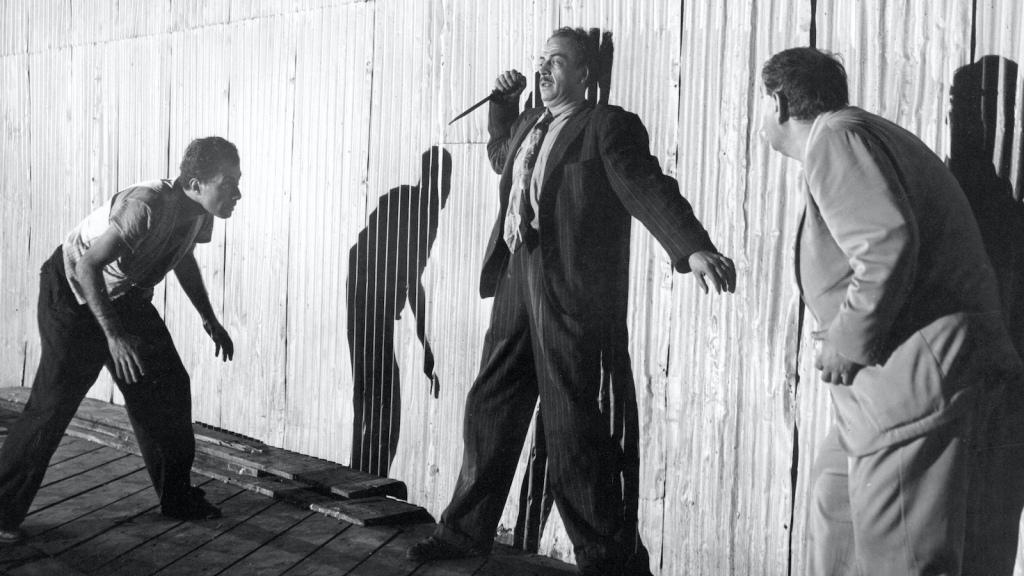
Elia Kazan’s Panic in the Streets offers an intriguing outbreak narrative that’s laced with terrific film noir aesthetics. Shot entirely on real locations, it’s a race-against-time thriller as Dr. Clinton Reed (Richard Widmark) of the US Health Services and New Orleans police captain Tom Warren (Paul Douglas) tries to catch a killer. What’s so worrying is that the murdered man – an illegal immigrant fresh off the boat – has carried the pneumonic plague to the shores of America. The pneumonic plague is highly contagious as the dreadful bubonic plague (aka Black Death). The killer (Jack Palance) and his cronies are unknowingly spreading the disease across New Orleans. Dr. Reed has to identify the men before it turns into a deadly epidemic.
Kazan who later made the classics like A Streetcar Named Desire (1951), On the Waterfront (1954) deftly showcased his directorial acumen in this breakthrough ‘disease’ narrative. The film-maker uses the impending doom of a plague to delve into the problems lying beneath the idyllic view of American household and institutional management.
2. The Andromeda Strain (1971)
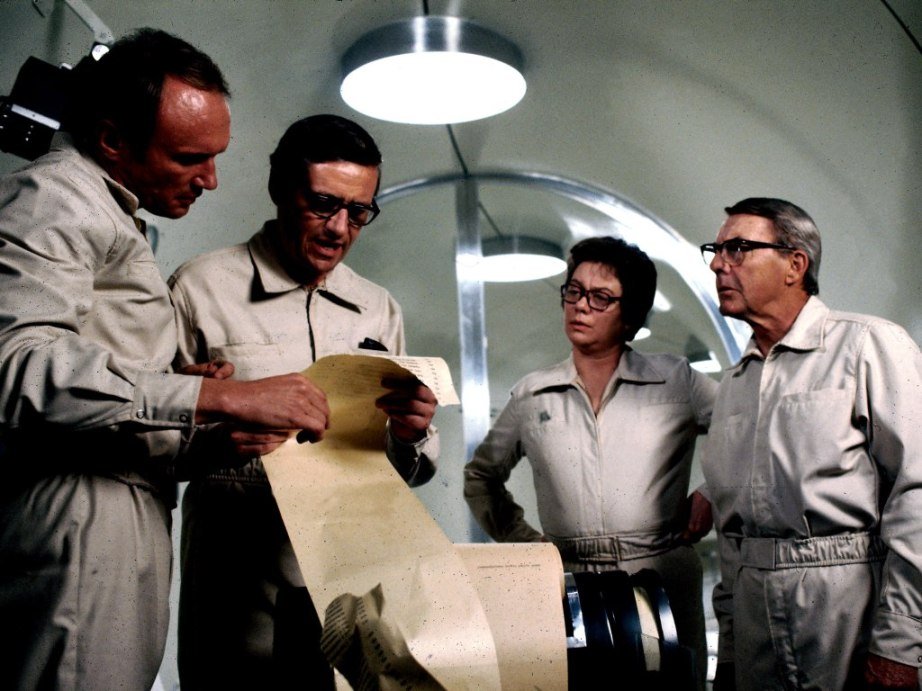
Robert Wise’s The Andromeda Strain marks the best text-to-screen adaptations of a Michael Crichton bestseller. Known for taut direction and innovative cinematography, the film opens with a possible viral outbreak that seems to have entirely wiped out the residents of a small town in New Mexico. A scientist team suspects that a satellite that perished mid-mission has landed in the town carrying a microscopic alien organism. Scientists gather in a massive underground laboratory and start doing tests on two survivors of the outbreak: a diabetic old man and a six-month-old baby.
Andromeda Strain isn’t strictly a disease or epidemic narrative, even though it fascinatingly details the efforts taken to protect individuals from the mysterious contagious strain. Moreover, the villain here is a constantly mutating allegedly extra-terrestrial virus. But it’s more or less a sci-fi thriller with its usual dramatic affinity and replete with interesting plot twists. And it is to the credit of director Robert Wise and screenwriter Nelson Gidding that the philosophical aspects of a Crichton novel are kept intact during the visual transmission.
3. Variola Vera (1982)
Variola Vera is the Latin name for smallpox, which was believed to be eradicated in Europe, but in 1972 it spread among a small populace in Yugoslavia’s capital city, Belgrade. The epidemic infected 175 and killed 35. Goran Markovic’s disturbing 1982 film is loosely based on the 1972 Yugoslav smallpox outbreak. Written by Markovic and Milan Nikolic, much of Variola Vera’s narrative is set inside a claustrophobic Belgrade City Hospital, whose inhabitants are quarantined and largely left to fend for themselves. Director Markovic uses the epidemic as a metaphor to reveal the horrors of the totalitarian communist regime where saving lives is the least priority for the opportunistic officials and politicians.
In this way, Markovic’s movie offers an incendiary perspective, particularly since the then-Yugoslav government received plaudits from the WHO (and the international community) for the measures taken to contain the epidemic. Though it’s true that the quickly implemented Martial law saved the epidemic from spreading across the nation, the film showcases how the government institutions behind the Iron Curtain were so inhumane and inefficient in really treating the afflicted. Part soap-opera and part visceral horror, Variola Vera offers a very distressing movie experience as the painfully, ugly deaths of people trapped inside the hospital can push you to the brink of despair.
Similar to Disease Outbreak Movies – 10 Distressing Films on the Potential Aftermaths of a Nuclear Holocaust
4. Outbreak (1995)
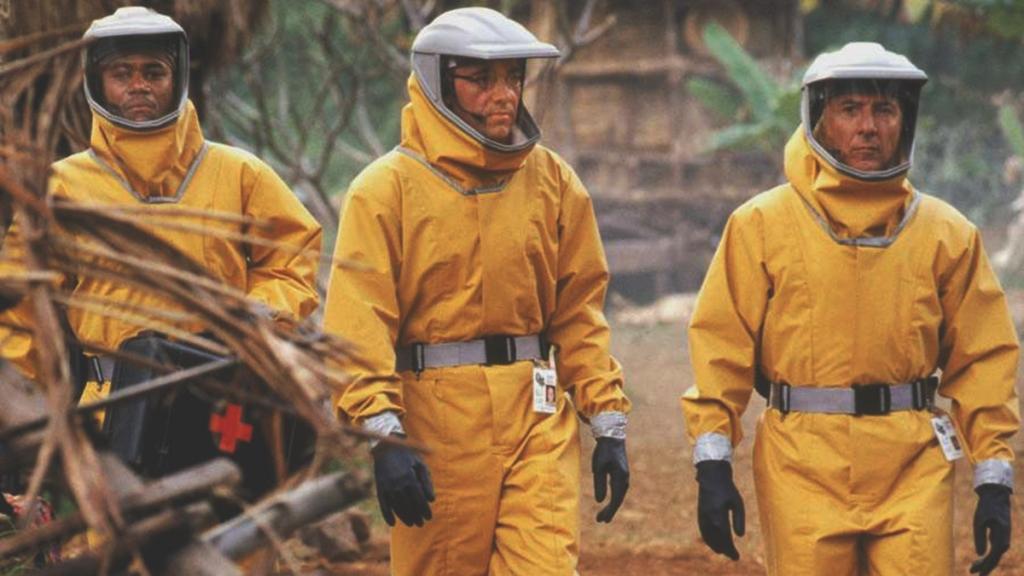
A deadly virus ravages an impoverished village in Zaire. Fearing its contagious nature and high fatality rate, the village is fire-bombed. Thirty years later, the virus resurfaces, and when an infected monkey (macaque) caught in Zaire’s wild is smuggled to California, the virus goes airborne. What’s more alarming than the rate of spreading is that the virus rapidly mutates. CDC’s (Center for Disease Control) topmost virologists Sam Daniels (Dustin Hoffman) and his ex-wife Robby Keough (Rene Russo) team-up to not only find an anti-dote but also to search the virus’ source. They are joined by other top brass authorities in defense and medical departments.
Wolfgang Peterson’s Outbreak was loosely inspired by Richard Preston’s 1994 non-fiction book The Hot Zone which chronicles the discovery of the Reston virus – a new strain of Ebola virus – in 1989 in a Virginia animal testing laboratory. A much faithful adaptation of the book – The Hot Zone (2019) – was made into a mini-series and aired in the National Geographic network. Ebola Reston, although looked eerily similar to Ebola Zaire, it couldn’t cause disease in humans. But the impact ‘Zaire’ strain of Ebola had on humans could be best understood by studying the devastation the virus caused in West Africa between 2013 and 2016 (11,310 deaths were reported).
Despite a stellar cast (which includes Hoffman, Morgan Freeman, Cuba Gooding Jr., Kevin Spacey, and Donald Sutherland), Outbreak suffers a bit from the ‘Hollywoodized’ treatment which persistently strives to hit the melodramatic note. Nevertheless, Outbreak is an entertaining thriller that plays on our fears of an invincible pandemic.
5. The Hole (1998)

The Hole aka Dong from Tsai Ming-liang, the single-mindedly idiosyncratic Taiwanese auteur, puts forth the story-line quickly as soon as the opening credits roll. Drenched in relentless monsoon rain, Taipei in the last week of 1999 falls prey to a mysterious epidemic caused by cockroaches. The central characters are two isolated individuals – a young man (Lee Kang-Sheng) and a woman (Yang Kuei-Mei) – living in the adjacent floors of a broken-down apartment complex. Although the city looks practically deserted, the duo go about their routine. While trying to a fix a broken pipe in the man’s toilet, a plumber drills a hole in the floor and leaves the job half-finished.
Peeping through the ceiling hole, the man above becomes interested in the life of a woman above even though she emotionally retreats into herself. Their incommunicability is interspersed with song-and-dance numbers (recordings of Hong Kong pop queen Grace Chang) which seems to surrealistically express the woman’s frigid emotions. Intense alienation, fumigation, the affected crawling like a cockroach, Dong has all the plot elements to make a dramatized outbreak narrative. But if you have experienced Ming-Liang’s works of cinematic slowness, it is evident that he’d do nothing to accentuate the inherent drama. He rather exceptionally observes the two people’s life of isolation and solitude while the world around them is falling apart. In fact, those who are attuned to the narrative can feel its transcendental effect. Of course, The Hole can be very disappointing to those who expect something more out of the plague premise.
Similar to Disease Outbreak Movies – Cargo [2018] – An Impactful Australian-Set Zombie Apocalpyse drama
6. Blindness (2008)
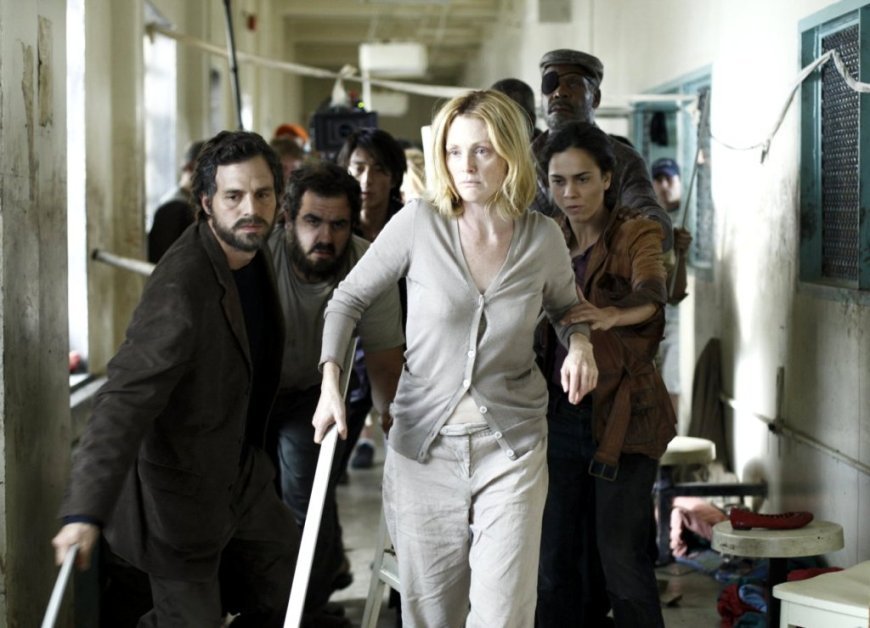
Fernando Meirelles’ Blindness is one of those films that has an interesting enough premise to recommend it although it falters in the execution. Based on Nobel-Prize winning Portuguese author Jose Saramago’s novel of the same name, Blindness centers around a mysterious epidemic of blindness. The blind, however, don’t see a curtain of black but gets enveloped in an expanse of bright white. As the outbreak spreads among the inhabitants of an unnamed city, the affected are quarantined and later banished to a dilapidated asylum. Chaos and madness gradually fall upon the imprisoned, desperate blind survivors.
Blindness has a wonderful cast, including Gael Garcia Bernal, Julianne Moore, Mark Ruffalo, and Alice Braga. And yet the bad writing doesn’t allow any performances to have an impact. Meirelles even though does an impressive job with visual compositions, struggles hard to inculcate the metaphorical brilliance of a Saramago novel. Yet despite plenty of stumbles, the film is worth watching as far as disease outbreak movies are concerned. The challenging premise alone makes it worth a watch.
Related to Disease Outbreak Movies: Zombiepura [2019]: ‘NYAFF’ Review – A Toothless Undead Comedy
7. Pontypool (2008)
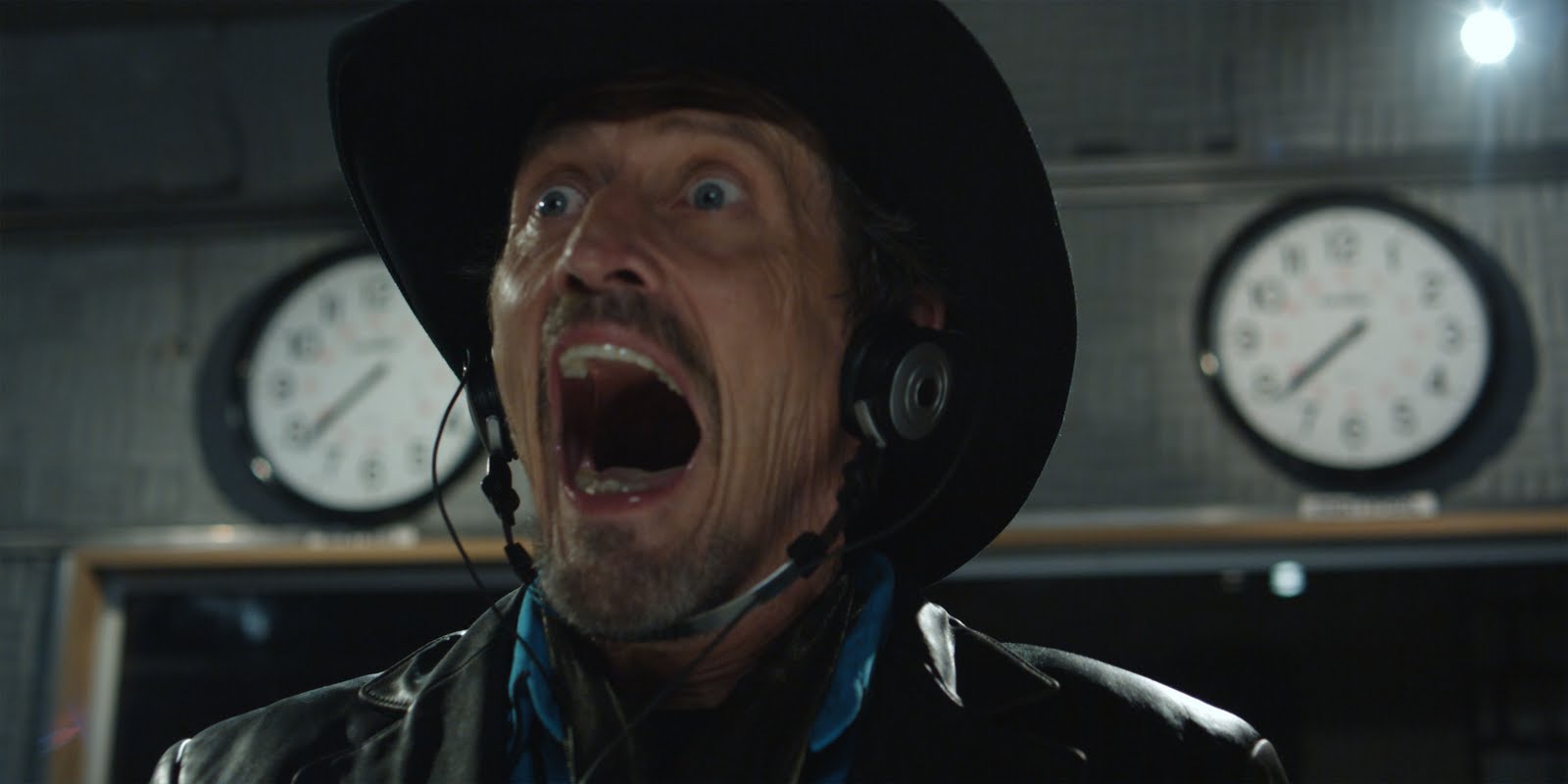
Bruce McDonald’s Canadian chiller can be too wacky for an epidemic narrative and too restrained for a zombie outbreak narrative. Written by Tony Burgess, based on his own novel, Pontypool almost entirely takes place inside a radio station, situated in the titular small town in Northern Ontario. The film opens on an early winter morning with a disc jockey, Grant Mazzy (Stephen McHattie) arriving at the station for his morning show. Producer Sydney Briar (Lisa Houle) and young technician Laurel Ann (Georgina Reilly) are there in the studio to assist him. Though it’s a boring time-slot, Mazzy is a pro at stirring things up. And soon, the radio station starts receiving news of a riot in front of a local doctor’s office.
The behavior of the town residents as heard from the station’s reporter on the ground, Ken Loney (stationed to provide traffic and weather updates) resembles something out of a Romero movie. However, there’s something unique about this outbreak: it’s not spreading through bites from the infected but through the English language. Yes, you heard it right.
“Some words are infected. And it spreads out when the contaminated word is spoken. We are witnessing the emergence, of a new arrangement for life, and our language is its host,” says a very nervous doctor ruminating on the strange predicament of the townspeople. Pontypool is the kind of horror narrative that subtly creeps up on you. Moreover, it shows how a horror flick can make most of its minuscule budget by effectively using the aural and visual elements. Though the final resolution is a bit underdeveloped, Pontypool has a relevant message for these scary times: “Today’s news, folks… Today’s ‘late-breaking’, ‘development’, ‘just across my desk’ news story is this: It’s not the end of the world, folks.”
Related to Disease Outbreak Movies: Train to Busan [2016] – A High-Speed Ride with the Undead
8. Perfect Sense (2011)
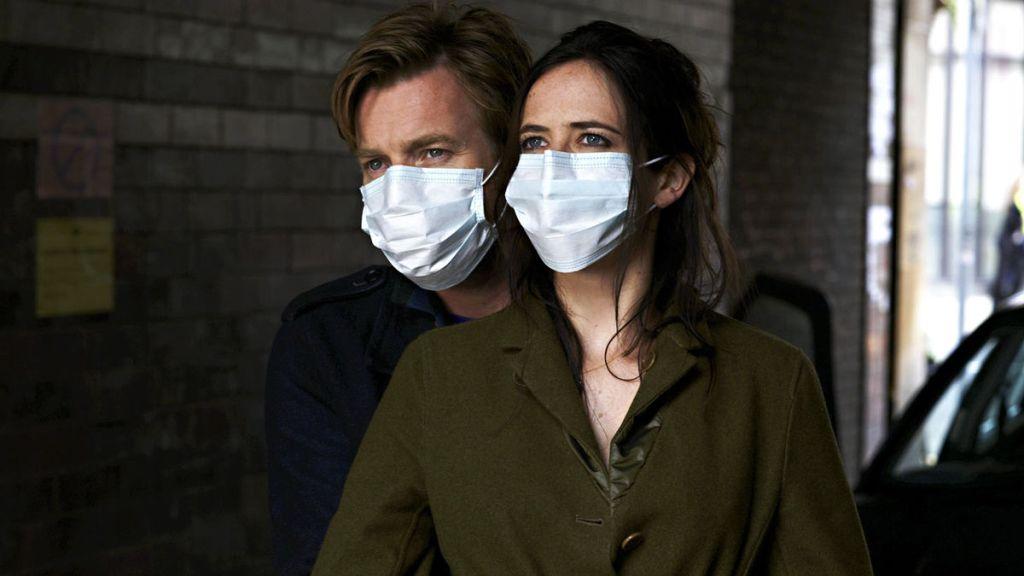
A playboy chef (Ewan McGregor) and a restrained epidemiologist (Eva Green) fall in love in David MacKenzie’s uncanny outbreak narrative. As these perfectly sexy stars fall in love, a peculiar pandemic sweeps the globe. The outbreak triggers a powerful wave of grief, followed by a loss of sense of smell. Sensing smells isn’t essential to go through the routine life. But it can affect people’s lives in subtle ways as smells can trigger memories or change moods. Furthermore, during the second stage of the epidemic, people are swamped with feelings of terror, followed by a great hunger that pushes them to consume anything in sight. When the hunger subsides they realize their sense of taste has gone.
Perfect Sense although it doesn’t make any sense, it is worth watching just for this elegiac and somber outbreak premise. The love story goes through predictable narrative beats and it can be a bit frustrating despite the adequate central performances. Nevertheless, the brilliant visual detailing and the thoughtful concept ultimately make Perfect Sense a bittersweet fable on the needs that makes us human (including the need to love and be loved).
Related to Disease Outbreak Movies: The Falling [2015] Review: A Metaphorical Analysis of Teenage Mass-Hysteria
9. Contagion (2011)
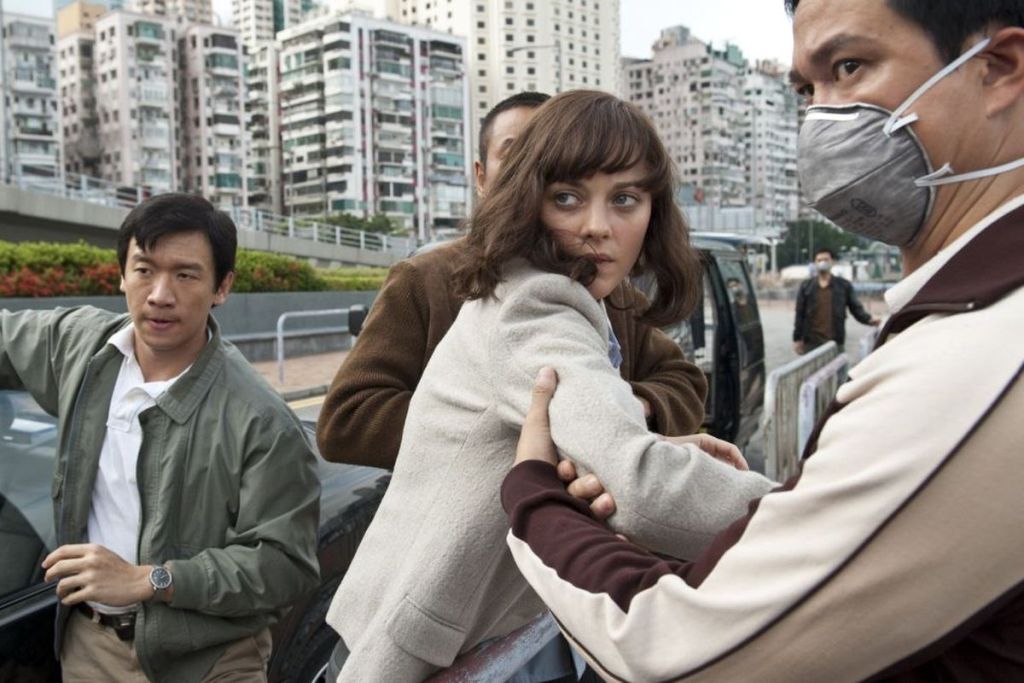
A blonde American woman coughs in an airport lounge bar in Chicago. A businessman in Japan collapses on a bus, his fellow passenger record the man’s suffering in a phone. A young man in Hong Kong, down with a fever, enters his apartment and falls into the embrace of his girlfriend. These seemingly random images of people afflicted with virulent symptoms perfectly correlate with the current deadly pandemic than it did in 2011. Written by Scott Burns and directed by Steven Soderbergh, Contagion is one of the most grounded disease thrillers that touches upon the various troubles in a world wracked by a virus: from people driven by their own priorities to wide-spread societal breakdown.
Though the star-studded drama is too clinical at times, Contagion gets one important thing absolutely right: the domino effect of such contagion in our intricately interconnected world. Some of the scenarios presented here are so closer to the current reality that people who already have enough to worry about can give it a miss. Contagion also warns us about misinformation in these times of fear and paranoia, where fake curatives and theories can be as harmful as the viral outbreak.
Also, Related to Disease Outbreak Movies – The Laundromat (2019) Netflix Review: A complex subject presented in a satirical manner
10. Virus (2019)
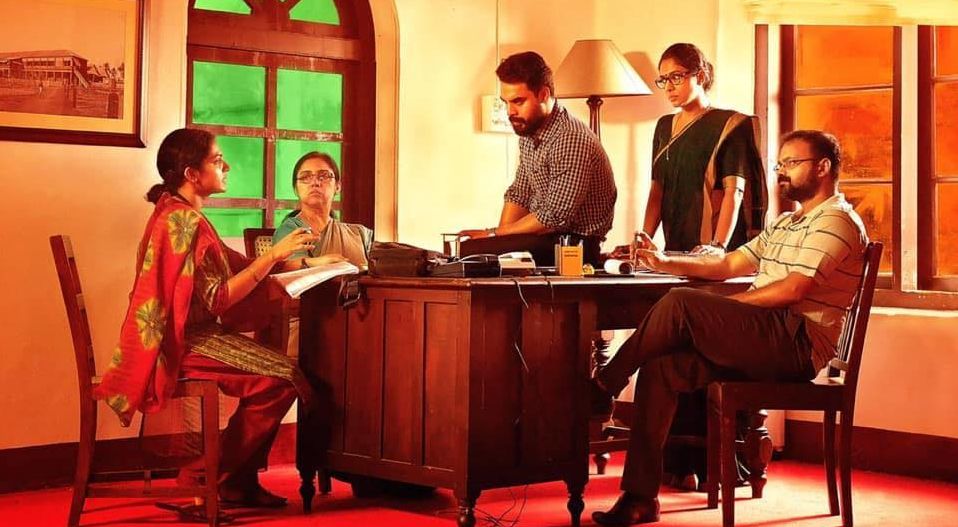
This Indian/Malayalam outbreak narrative showcases the threat of a deadly epidemic from interestingly different perspectives, which is at once intimate and all-encompassing. Virus is based on May 2018 Kerala Nipah virus outbreak (in Kozhikode and Malappuram districts), which claimed 17 lives. Subsequently, the virus’ origin was traced to the fruit bats in the area. The thriller recounts the painful losses while also acknowledging the intellect, compassion, and professional integrity of the disparate set of individuals who all played a crucial role in containing the epidemic.
Though it’s laced with uneven melodrama (and a loud background score), director Aashiq Abu and his trio of screenwriters (Muhsin Parari, Sharfu & Suhas) does a commendable job in directing our attention on the real, collective heroes who all are driven by a sense of dogged professionalism. Eventually, Virus is worth watching for its timely message of compassion and caring in the face of incomprehensible maladies.
Honourable Mention:
Flu (2013)

Korean epidemic disaster movie opens with a container full of illegal immigrants, which is opened (by a peoples smuggler) in Bundang, a satellite city near South Korea’s capital city, Seoul. There’s only one survivor, a man who wanders through the city disoriented and unable to speak the language. The chunk of the action/drama, however, revolves around a fireman who is sort of dating a single mother, also a doctor, when the deadly contagion that kills within 36 hours grips the city.
Flu (aka Gamgi) is brilliantly staged and riveting in its first hour of the two-hour running time. But then the narrative doesn’t focus on the large-scale impacts of the outbreak, and smug enough to wallow in melodramatic excess. The plot contrivances and incessant wailing are the sources of irritation. Deranged (2012), another Korean disease outbreak thriller, also suffers from such intentions to pursue the melodrama (it’s the problem with most of the Korean main-stream drama, including the extremely cloying Pandora, 2016) over the inherent drama in a outbreak narrative.

